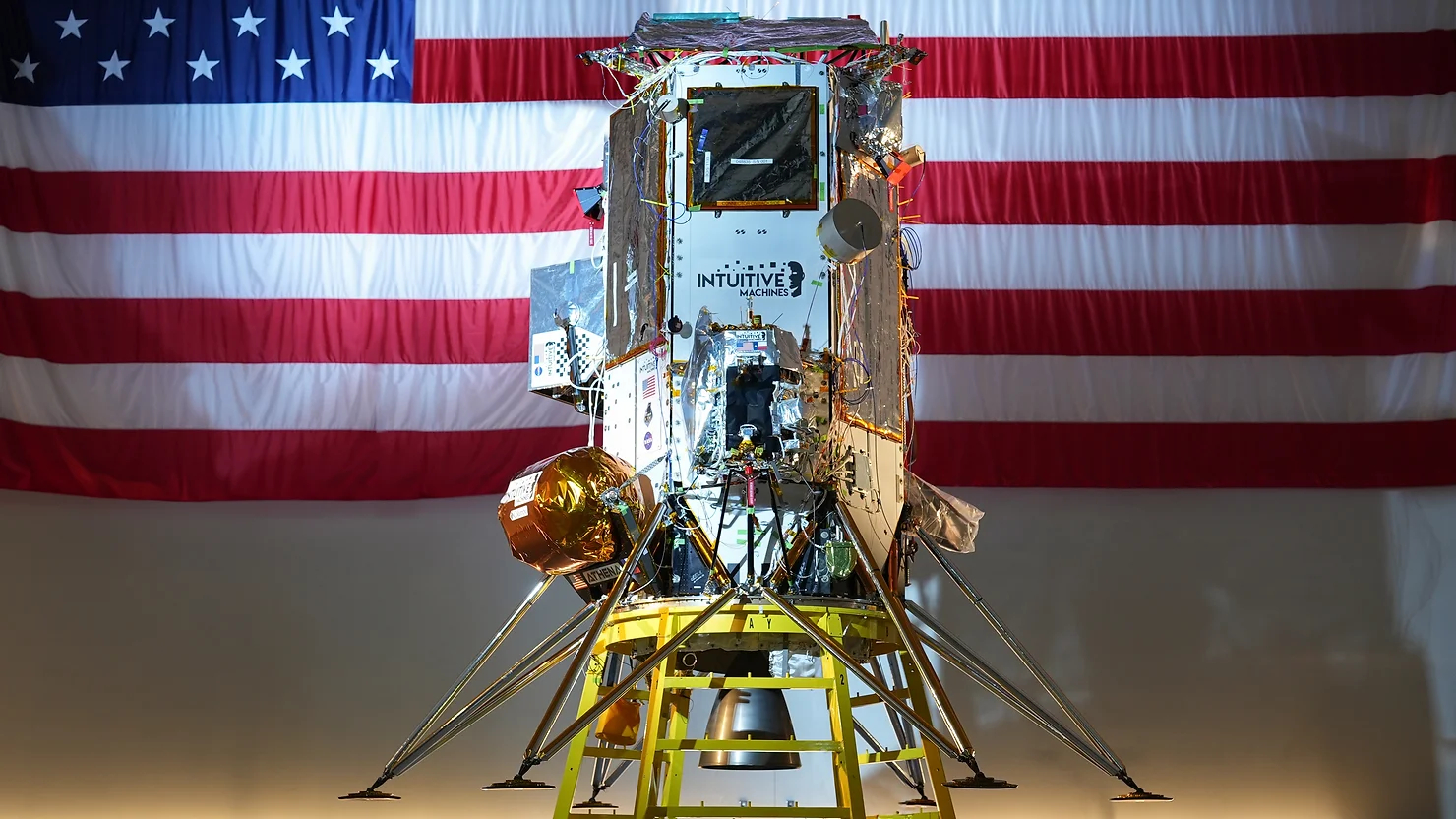Beyond DeepSeek: An Overview of Chinese AI Tigers and Their Cutting-Edge Innovations
The recent disruption caused by DeepSeek’s R1 model sent shockwaves through the AI community, demonstrating that Chinese AI advancements may have been underestimated. The model’s performance, rivaling some of the most advanced offerings from OpenAI and Anthropic at a fraction of the cost, signaled a new era of competition in artificial intelligence. However, DeepSeek is […] The post Beyond DeepSeek: An Overview of Chinese AI Tigers and Their Cutting-Edge Innovations appeared first on TOPBOTS.

The recent disruption caused by DeepSeek’s R1 model sent shockwaves through the AI community, demonstrating that Chinese AI advancements may have been underestimated. The model’s performance, rivaling some of the most advanced offerings from OpenAI and Anthropic at a fraction of the cost, signaled a new era of competition in artificial intelligence.
However, DeepSeek is not the only Chinese company making waves in AI. While industry giants like Alibaba, Tencent, Baidu, and ByteDance continue to lead the charge, a new generation of AI startups – often referred to as the “Chinese AI Tigers” – is emerging as formidable players. These startups are pushing the limits of generative AI, challenging global incumbents with state-of-the-art models and breakthrough innovations.
In this article, we will explore DeepSeek and five of the most influential Chinese AI startups: Moonshot AI, Zhipu AI, Baichuan AI, MiniMax, and 01.AI. Each of these companies has developed cutting-edge AI models and solutions that are shaping the future of artificial intelligence, both in China and beyond.
DeepSeek: A Research-Driven AI Powerhouse in China
Founded in May 2023, DeepSeek is an AI company based in Hangzhou, operating as an independent entity under High-Flyer, a leading Chinese quantitative hedge fund. Unlike many AI startups chasing commercialization, DeepSeek prioritizes technical innovation, running more like a research lab than a traditional business. The company is focused on developing artificial general intelligence (AGI) through breakthroughs in mathematics, coding, and multimodal AI capabilities.
Technical Innovation & Model Efficiency
DeepSeek has distinguished itself through cost-effective AI solutions and pioneering architectural advancements. Its research efforts have led to the deployment of novel techniques, including Multi-Head Latent Attention (MLA), sparse Mixture-of-Experts (MoE), and FP8 mixed precision training. These innovations significantly reduce memory requirements and computational costs, allowing DeepSeek to achieve state-of-the-art performance with fewer resources than industry giants like OpenAI, Meta, and Anthropic.
DeepSeek V3, its most advanced model, boasts 671B parameters and was trained in just 55 days at a cost of $5.58 million – an order of magnitude more efficient than its Western counterparts. The company has also committed to open-source development, furthering its influence in the AI research community.
Product Lineup
- DeepSeek-V2 (May 2024): Introduced the MLA architecture, reducing inference costs and intensifying competition in China’s AI market.
- DeepSeek-V3 (December 2024): A 671B-parameter model trained in record time, outperforming Llama 3.1 and Qwen 2.5 while matching GPT-4o and Claude 3.5 Sonnet.
- DeepSeek-R1 (January 2025): A reasoning model based on DeepSeek-V3 that rivals OpenAI’s o1 in mathematics and coding benchmarks. Open-sourced and free for commercial use, it delivers performance comparable to GPT models at just 3% of the cost.
- Janus-Pro-7B (January 2025): A vision model capable of understanding and generating images from text prompts, outperforming OpenAI’s DALL-E 3 and Stable Diffusion 3 in multiple image generation benchmarks.
- Distilled Models: Optimized smaller-scale versions that retain high efficiency and strong performance.
Leadership & Talent Strategy
DeepSeek is led by CEO Liang Wenfeng, a former AI researcher and founder of High-Flyer Quant. Known for his technical idealism and open-source advocacy, Liang believes AGI could be achieved within the next decade. The company’s talent acquisition strategy is unconventional, focusing on hiring fresh graduates and early-career researchers driven by curiosity rather than experience. This approach fosters a culture of bottom-up innovation, with flexible resource allocation to encourage groundbreaking research.
Funding & Business Model
Unlike many AI startups dependent on external venture capital, DeepSeek is entirely funded by High-Flyer Quant. The hedge fund’s strategic investment in over 10,000 GPUs before U.S. sanctions has provided DeepSeek with a significant computational advantage.
While primarily research-driven, DeepSeek has achieved profitability through API revenue. Its aggressive pricing – offering API access at just 1/53rd the cost of Claude 3.5 Sonnet – has triggered a price war in the AI industry, challenging established players.
Outlook
DeepSeek’s chatbot technology demonstrates strong performance, delivering factual responses with linked resources. By combining technical breakthroughs, open-source accessibility, and an unconventional approach to AI development, DeepSeek is emerging as one of China’s most formidable AI contenders.
Moonshot AI: Pushing the Boundaries of Long-Context LLMs
Moonshot AI (YueZhiAnMian) is a Beijing-based artificial intelligence company founded in March 2023 by AI researchers Yang Zhilin, Zhou Xinyu, and Wu Yuxin. The company’s name draws inspiration from Pink Floyd’s album The Dark Side of the Moon, reflecting CEO Yang Zhilin’s admiration for the band. Moonshot AI specializes in developing LLMs capable of processing extensive text inputs, with a strong emphasis on long-form context and response capabilities.
Product Lineup
- Kimi Chat (October 2023): A breakthrough AI assistant capable of handling up to 200,000 Chinese characters in a single input, making it a leader in long-form text processing. Available via chat interface and API.
- Kimi 1.5 (January 2025): The latest o1-level multimodal model, achieving state-of-the-art performance on short-chain-of-thought (CoT) benchmarks. It significantly outperforms GPT-4o and Claude 3.5 Sonnet on AIME, MATH-500, and LiveCodeBench, with improvements reaching up to +550%.
- Moonshot-V1-Vision-Preview (January 2025): A multimodal image understanding model that excels in OCR text extraction, image recognition, and advanced visual processing.
Leadership
CEO Yang Zhilin, a co-founder of Recurrent AI, previously worked at Meta AI and Google Brain. He earned a PhD in computer science from Carnegie Mellon University under the advisement of Ruslan Salakhutdinov. A key contributor to Transformer-XL, Yang’s expertise in extending language model context windows has been instrumental in shaping Moonshot AI’s platform.
Funding & Business Model
Moonshot AI has attracted significant investor confidence, securing $1 billion in a Series B round in February 2024, led by Alibaba with participation from Sequoia Capital China, Meituan, and Xiaohongshu. A subsequent $300 million round in August 2024, backed by Tencent Investment, Gaorong Capital, and Alibaba, raised its valuation to $3 billion.
Moonshot AI generates revenue through subscription-based services, pay-per-use API access, and licensing its AI technologies.
Outlook
Moonshot AI’s chatbot delivers high-quality responses with factual accuracy and linked sources. With its expertise in long-context language processing and a strong funding base, Moonshot AI is poised to become a dominant player in China’s AI landscape, challenging global incumbents with its cutting-edge models.
Zhipu AI: Advancing AI with Multimodal and Enterprise Solutions
Founded in 2019 as a spin-off from Tsinghua University, Zhipu AI (Beijing Zhipu Huazhang Technology) has emerged as a key player in China’s AI landscape. The company focuses on developing advanced LLMs and multimodal AI applications for both consumer and enterprise use cases, with a mission to “teach machines to think like humans.”
Product Lineup
- GLM-4.0: An open-source, end-to-end speech large language model, released in October 2024, capable of human-like interactions with customizable tone, emotion, and dialect.
- CodeGeeX: A 130B-parameter code-generation model.
- CogView: A text-to-image model that generates high-quality, realistic, and novel images from textual descriptions.
- AutoGLM: A voice-command-driven AI agent designed for smartphone task automation, capable of handling complex requests like ordering from local stores based on user shopping history.
- Zhipu MaaS Platform: A cloud-based AI service providing enterprise access to Zhipu’s suite of AI models, including GLP-4-Plus, CogView-3-Plus, CogVideoX, and GLM-4V-Plus.
Leadership
Zhipu AI’s leadership team is anchored by CEO Zhang Peng, a Tsinghua University alumnus. The company’s foundation is deeply rooted in academia, having been co-founded by Tang Jie and Li Juanzi, both esteemed professors at Tsinghua University. Tang Jie, who serves as the Chief Scientist, is also the vice director of the Beijing Academy of Artificial Intelligence, highlighting his significant influence in China’s AI research community.
Funding & Business Model
Zhipu AI has attracted significant investment from major Chinese technology firms and venture capitalists. In 2023, the company raised RMB 2.5 billion (≈$350 million) in funding, with backers including Meituan, Ant Group, Alibaba, Tencent, Xiaomi, Sequoia Capital, and GL Ventures. A December 2024 funding round secured an additional $420 million, valuing the company at over $2.8 billion.
The company’s primary revenue stream comes from API access through the Zhipu MaaS Platform. In 2024, API revenue surged more than 30-fold year-over-year, with daily token consumption increasing 150-fold. The MaaS platform has attracted over 700,000 enterprise and developer users.
Challenges & U.S. Trade Blacklist
In October 2024, Zhipu AI was added to the U.S. trade blacklist, limiting its access to American technology due to concerns about its ties to the Chinese military. Despite these restrictions, Zhipu AI has remained resilient, maintaining strong domestic growth and continued support from major Chinese investors.
Outlook
While Zhipu AI faces stiff competition from other Chinese AI tigers, it continues to solidify its position in the Chinese AI ecosystem through a strong enterprise focus and cutting-edge multimodal models. However, its chatbot’s performance lags behind competitors, often struggling with precise, nuanced responses and occasionally mixing English and Chinese in its outputs. Nonetheless, its rapid growth and financial backing make it a formidable contender in China’s AI race.
Baichuan AI: China’s OpenAI Challenger
Founded in April 2023, Baichuan AI (Beijing Baichuan Intelligent Technology Co., Ltd.) is a Beijing-based artificial intelligence company led by Wang Xiaochuan, the former CEO of Sogou. The company positions itself as China’s equivalent of OpenAI, focusing on AI-driven solutions in healthcare, education, and finance. One of its core missions is leveraging AI to tackle systemic issues such as the global shortage of skilled doctors.
Product Lineup
Baichuan AI has released over 12 large language models since its inception, spanning both open-source and proprietary categories:
- Open-source models: Baichuan-7B, Baichuan-13B, Baichuan2-7B, and Baichuan2-13B.
- Proprietary models:
- Baichuan4: A multimodal model with extended context and integrated search capabilities.
- Baichuan4-Air: Uses a MoE (Mixture of Experts) architecture to optimize costs and significantly enhance speed.
- Baichuan4-Turbo: Tailored for high-frequency enterprise use, improving response time and efficiency.
- Baixiaoying chatbot: Competing with local AI offerings like Baidu’s Ernie Bot and Moonshot AI’s Kimi, Baixiaoying has gained recognition for its superior search capabilities, functioning “like a professional” according to company claims.
Leadership
Baichuan AI is led by founder and CEO Wang Xiaochuan, who previously helmed Sogou, once China’s second-largest search engine before its acquisition by Tencent. The company’s core team comprises AI experts from leading global tech firms, including Google, Tencent, Baidu, Huawei, Microsoft, and ByteDance, bringing together deep expertise in AI development and deployment.
Funding & Business Model
Baichuan AI has received strong backing from major Chinese technology investors. In October 2023, the company raised $300 million in a Series A1 funding round, led by Alibaba, Tencent, and Xiaomi. This was followed by a Series A round in July 2024, which secured an additional $691 million, bringing its valuation to $2.7 billion.
Baichuan AI’s business model revolves around API monetization, offering enterprise access to its proprietary models. Additionally, it provides domain-specific AI solutions across healthcare, finance, education, and entertainment. The company also customizes AI solutions for enterprise clients, leveraging its foundational models to address specific industry needs.
Outlook
With a clear ambition to rival OpenAI, Baichuan AI is rapidly expanding its technological footprint in China. Its robust funding, seasoned leadership, and advanced AI models position it as a key player in China’s AI landscape.
MiniMax: Advancing Multimodal AI Solutions
Founded in December 2021, MiniMax is a cutting-edge artificial intelligence company dedicated to developing large-scale AI models and multimodal technologies. The company integrates text, voice, and vision capabilities into its AI solutions, positioning itself as a key player in China’s AI landscape.
Product Lineup
- Talkie (June 2023): An AI companion app allowing users to engage with virtual characters, including digital recreations of celebrities. The app gained significant traction in international markets, particularly among U.S. teenagers, ranking as the fifth most downloaded free entertainment app in the U.S.
- Hailuo AI (March 2024): A multimodal large language model consumer platform offering AI-generated text and music features. Expanded in September 2024 with Video-01, a text-to-video model producing high-resolution videos from text prompts.
- MiniMax-01 Series:
- MiniMax-Text-01: A 456B-parameter text-only model that surpasses Google’s Gemini 2.0 Flash on MMLU and SimpleQA benchmarks. With a 4M-token context window, it processes over 3 million words in a single input – approximately five times the length of War and Peace.
- MiniMax-VL-01: A multimodal model integrating text and visual inputs, excelling in ChartQA benchmarks. While it rivals Anthropic’s Claude 3.5 Sonnet, it falls short of OpenAI’s GPT-4o, Google’s Gemini 2.0 Flash, and InternVL2.5 in some evaluations.
- T2A-01-HD: An advanced speech synthesis model supporting 17 languages, including English and Chinese. It enables voice cloning from a mere 10-second sample and is available exclusively via MiniMax’s API and Hailuo AI platform.
Leadership
MiniMax was founded by Yan Junjie and Zhou Yucong, both former SenseTime employees. Yan led deep learning toolchain development at SenseTime, while Zhou spearheaded its algorithms R&D team. The leadership team also includes Yang Bin, a former Uber AI researcher known for his work in autonomous driving technologies.
Funding & Business Model
MiniMax has attracted substantial investment from leading Chinese technology firms. In June 2023, the company raised over $250 million, backed by a Tencent-led entity, bringing its valuation to $1.2 billion. A subsequent funding round in March 2024, led by Alibaba Group, secured $600 million, raising its valuation to $2.5 billion. Investors also include Hillhouse Investment, HongShan, IDG Capital, and Tencent.
MiniMax operates under a hybrid business model that balances open-source development, API services, and product innovation. The company releases select AI models with licensing restrictions to prevent their use in developing competing AI systems. It also provides API access to its AI capabilities, allowing third-party developers to integrate MiniMax’s technologies into their applications. Additionally, MiniMax develops both B2B solutions and consumer-facing applications, such as AI-powered role-playing platforms and text-to-video generators, positioning itself as a versatile player in the AI ecosystem.
Challenges & Outlook
MiniMax has faced regulatory challenges, including the removal of Talkie from Apple’s App Store in December 2024 due to concerns over unauthorized AI avatars of public figures. Additionally, the company has been accused of using copyrighted content in its training data by British TV channels and Chinese streaming service iQIY. Despite these hurdles, MiniMax continues to innovate and expand its AI capabilities, solidifying its position in China’s AI sector.
01.AI: Industry-Specific AI Company Led by Kai-Fu Lee
Founded in March 2023, 01.AI is a Beijing-based artificial intelligence startup led by Kai-Fu Lee. The company focuses on developing smaller, industry-specific AI models while balancing both open-source and proprietary solutions.
Product Lineup
- Open-Source Yi Models (November 2023): Released three model variants – Yi-6B, Yi-9B, and Yi-34B – designed for text generation, understanding, and complex reasoning. These models serve as the foundation for 01.AI’s large-scale language model offerings.
- Yi-Large (Early 2024): The company’s first closed-source model, built for high-performance reasoning and content creation.
- Yi-Coder: A specialized coding model excelling in code completion, editing, and long-context modeling, supporting up to 128K tokens. It also demonstrates strong mathematical reasoning.
- Wanzhi (May 2024): A personal AI workspace and productivity tool aimed at enhancing user efficiency.
Leadership
01.AI is led by Kai-Fu Lee, a renowned AI pioneer and former executive at Microsoft and Google. Lee is also the co-founder of Sinovation Ventures, a leading Chinese venture capital firm. The company has a team of over 100 AI specialists and experienced business professionals, many of whom previously worked with Lee at top tech firms.
Funding & Business Model
01.AI has secured significant investments, raising $300 million in November 2023 from Tencent, Xiaomi, Alibaba Cloud, and Sinovation Ventures, which brought its valuation to $1 billion. In August 2024, the company reportedly secured additional funding worth hundreds of millions from an international strategic investor, a Southeast Asian consortium, and other institutions.
The company operates under a dual approach, balancing open-source accessibility with proprietary solutions. Its smaller models are open-source, allowing for academic and commercial use while maintaining strong performance across various AI benchmarks. In parallel, 01.AI offers API access to its closed-source models, providing six enterprise-optimized APIs, including Yi-Large, Yi-Large-Turbo API, Yi-Medium API, Yi-Medium-200K API, Yi-Vision API, and Yi-Spark API. Additionally, the company develops consumer-facing AI applications such as Wanzhi, an AI productivity tool, and RuYi, a digital human solution, further expanding its reach in both enterprise and individual user markets.
Market Impact & Outlook
In August 2024, 01.AI announced that its Wanzhi productivity app had reached 10 million users, generating over 100 million yuan ($13.8 million) in revenue. With a strong balance between open-source development and enterprise-driven AI solutions, 01.AI is positioning itself as a key player in China’s AI sector, offering scalable and specialized AI tools for a range of industries.
Conclusion: The Future of China’s AI Innovators
The rapid advancements made by DeepSeek and the Chinese AI Tigers highlight the country’s growing prominence in artificial intelligence. These startups are not only competing with global tech giants but also setting new benchmarks in efficiency, multimodal capabilities, and enterprise applications. As China continues to invest heavily in AI research and development, the next wave of innovations from these companies could reshape the global AI landscape.
Enjoy this article? Sign up for more AI updates.
We’ll let you know when we release more overview articles like this one.
The post Beyond DeepSeek: An Overview of Chinese AI Tigers and Their Cutting-Edge Innovations appeared first on TOPBOTS.













![From Gas Station to Google with Self-Taught Cloud Engineer Rishab Kumar [Podcast #158]](https://cdn.hashnode.com/res/hashnode/image/upload/v1738339892695/6b303b0a-c99c-4074-b4bd-104f98252c0c.png?#)
































































